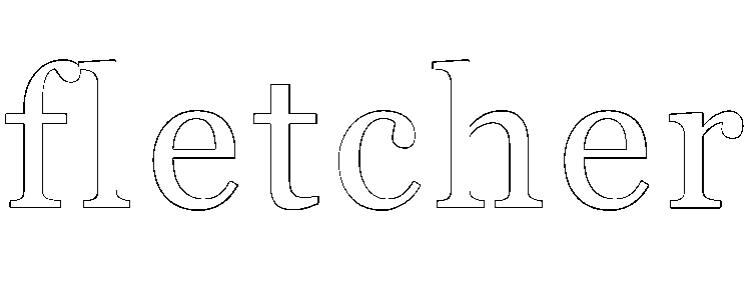Given the recent negative immaterial reviews of our company on our google business review page, we thought it would be illuminating if we gave an honest review of our company – the good, the bad, and the ugly.
First a little history – This company was formed 17 years ago to fill a void in the unclaimed fund retrieval service industry. Or more accurately described as a vacancy. The industry landscape was very different in 2008, there were no companies in New York actively trying to establish a notification platform to alert the average citizen about unclaimed funds held in the custody of the New York State Comptroller Office of Unclaimed Funds (NYS OUF).
This realization occurred because our founders worked primarily on the compliance side of unclaimed funds trade. Firsthand, we saw how little diligence was being conducted by institutions prior to escheating their customers’ unclaimed or dormant accounts (it was too costly); how aggressive audit firms were in finding this money for NYS OUF (being paid a percentage of extrapolated look back periods); and how misaligned the incentives were for any involved party to do anything other than the minimum effort required under statute to return the funds to their customers rather than just relying on the indemnity provided by NYS OUF and tossing the assets into the State’s coffers.
Fletcher set out by using very costly direct marketing campaigns, providing all the information up front and offering the options available to as many people as we could – over 5,000,000 solicitations since inception. We learned:
1. Many people are reasonably very skeptical;
2. Negativity is the energy that fuels social networks;
3. Electronic outreach is worthless, as it should be because there is no cost, hence the world being filled with spam;
4. There are very few unsavory actors in this space, but the ones that do act improperly tend to dominate the media’s coverage of the industry, providing the cover the State needs to make regulations overburdensome for legitimate companies;
5. Despite everything they say to the contrary, NYS does not desire to return the bulk of this money.
Now for the review –
The Good
Just look at all our other blog posts. We do not need to pat ourselves on the back with this post.
The Bad
1. We are a small business with limited resources. Answering every phone call with an informed domestic employee is impossible. We have tried to solve this problem repeatedly.
a. 2008 - The principals answered the phones solely. We were young and capable of the hustle. We missed a lot of calls, but always tried to call back everyone.
b. 2010 to 2020 - We staffed up with New York employees in a physical office at an incredible expense and did a reasonable job at handling the call volume. But the quality of our representative’s knowledge was not ideal at times as we tried to increase our outreach. It did not help that NYS OUF kept changing the regulations without any notification. Repeated denials with no explanations for the decision or willingness to provide clarity to our inquiries on claim submissions.
c. 2020 to 2024 – We suffered during the pandemic years and had to trim our expenses. We trimmed our domestic staff and implemented a 3rd party domestic call center. It allowed the principals, now getting older, from having to answer the phones all day. The call center service answered the calls, but the people in the call center were constantly rotating and their knowledge was based on FAQs that we provided and anything other than a routine question was unable to be answered.
d. 2025 – We now have dedicated staff in the Philippines, just like every major corporation in the US. They are awesome, knowledgeable, and helpful to our customers.
The Ugly
2. While we have a very high success rate collecting claims, especially complicated claims, we routinely fail in succeeding as well.
a. We cannot always find connections to the previous addresses of our customers that are registered to the assets. And NYS OUF refuses to accept reasonable solutions such as Transunion reports. They used to accept this evidence, but then they stopped (most likely because it was resulting in too many claims being paid). They will say this practice of claim denial based on requiring hard evidence of an old address is in the spirit of fraud prevention, or to prevent payment on invalid claims, as if that is something that occurs with any regularity.
b. We are not as successful as we used to be collecting lower valued deceased claims.
i. We have learned creative and acceptable ways to avoid a court proceeding for these claims, but NYS OUF has arbitrarily changed the processing regulations often making it increasingly difficult.
ii. We used to be able to utilize the provision of the NYS Surrogate code that allowed an heir to use an affidavit to collect money if they were children, siblings or nieces and nephews of deceased account owners. We utilized this process a lot, and to the benefit of a lot of rightful heirs to the money of their deceased loved ones. But one day, NYS OUF started denying all the claims that had previously been approved by way of these small estate affidavits. Now they basically require a court order. NYS OUF will allow a spouse to use an affidavit sometimes, but when they do not, no explanation is provided.
iii. We used to assist our customers obtain voluntary administration certificates from Surrogates Court for any value claim, but the NYS courts have made that process increasingly encumbering, so we had to raise our value threshold in order not lose money on these claims. NYS OUF requires the involvement of the IRS for these claims as well.
iv. About a decade ago NYS OUF implemented an arbitrary rule, albeit grounded in Surrogate Code, about recording powers of attorney for Estates that have been probated, increasing the cost of recovery, the time to recover, and if you are in a certain county forget it. Erie County is a prime example for this obstruction. Forget filing this required document in Erie County Surrogate’s Court. Or Suffolk County Surrogate’s Court. They will not allow it and refuse to provide an answer as to why. It is so frustrating. If you ask NYS OUF, they will say the Surrogate Courts required it; If you ask the courts, they will assert that these statutes are up for interpretation and adhering to them is at the sole discretion of their chief clerk.
c. We suck at collecting funds once the NYS OUF Legal Department gets involved. One day we will write a dedicated post about this one. We have a single digit percentage recovery rate for all claims that get sent to the NYS OUF legal department. If we filed an FOIA request, it is a good bet that statistics showing approvals and payouts from claims turned over to their legal department is less than 5%. This department always seems to find a way to delay or deny payment, using the full might of the State’s bureaucratic machinery. The effort and legal talent at work, as evidenced by their intricate written responses and expansive, itemized lists of requirements is a remarkable allocation of State resources for the purpose of retaining their unclaimed funds.
d. We are required to have original notarized claim forms. It’s 2025, and we are not allowed to use widely accepted electronic notary options to provide our initial claim documentation. This serves to ensure that our claims will be processed slower and will deter many would be customers who would otherwise benefit from our service. Any reasonable person would have to question why the NYS OUF would want to stymie the claims of a professional outfit - one actively trying to help people recover their unclaimed funds in the most transparent way possible - and be placed in a subordinate position when the stated mandate of the NYS OUF is to return the funds.
e. Our claims take 90 days to pay out, when you can go online with NYS OUF and it may be much faster. Frankly, simple low value claims are quicker to file online. NYS OUF refuses to allow providers of retrieval services to be afforded that same option for their customers. No other State restricts finders quite like NYS OUF, who just happens to hold the most amount of unclaimed money now at $20,000,000,000.
These are just some of the deficiencies in our operations, there are more. The point is that when we get negative reviews from people that have never hired us, never spoken to us, maybe were never even solicited by us, it is disappointing. The idea that offering a service to do something that one could otherwise attempt to do for free on their own is somehow a scam, or illegitimate is based on a false framework.
We offer a simple business proposition. We look for unclaimed funds with NYS OUF. We contact the owners of those funds. We tell them everything that is known about the funds. We offer to assist in the process for a fee contingent upon our success. We are regulated by the State of New York. The tendency of so many people to lean towards negativity likely has more to do with the frustration of learning their money was seized by NYS OUF in the first place. We are just here offering one possible solution.

